20 Jan2022
By Katrina Norfleet
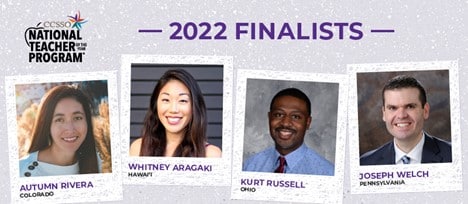
The Council of Chief State School Officers (CCSSO) has announced four exemplary educators from across the country as finalists for 2022 National Teacher of the Year, all of whom have been prepared for teacher education by AACTE member institutions:
09 Dec2021
By Ward Cummings
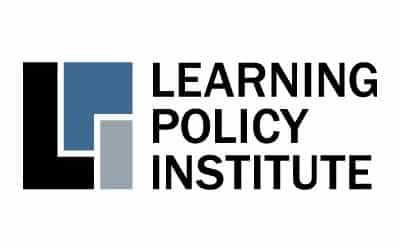 AACTE recently launched its year-long collaboration with the Teacher Licensure Collaborative (TLC), a partnership with the Learning Policy Institute, Education Commission of the States, and additional national partners. TLC is a gathering of national organizations and interested state education institutions working to advance revisions of state licensure and certification standards in order to incorporate whole child practices and to ensure alignment with the science of learning and development.
AACTE recently launched its year-long collaboration with the Teacher Licensure Collaborative (TLC), a partnership with the Learning Policy Institute, Education Commission of the States, and additional national partners. TLC is a gathering of national organizations and interested state education institutions working to advance revisions of state licensure and certification standards in order to incorporate whole child practices and to ensure alignment with the science of learning and development.
The partnership meeting began with a welcome from Linda Darling-Hammond, Ed.D., who explained the various motivations that inspired the creation of TLC. The kickoff was an opportunity for all of the state team members to gather and learn about the collaborative’s goals and structure. A few AACTE affiliate members were among the states participating in the TLC including Ohio, Massachusetts, and North Dakota.
06 Dec2021
By Nicole Dunn
The third episode of AACTE’s new University Principal Preparation Initiative (UPPI) Podcast series chronicling this Wallace Foundation multi-year principal program redesign initiative is now available. In the last episode, AACTE identified the gaps between “learning” and “doing.” In this episode, guests dive into a case study of the UPPI program at University of Connecticut (UConn ) and what they have learned from their program redesign. Episode 3 features Richard Gonzalez, who oversees the principalship and superintendency program at UConn and serves as the director of UConn’s UPPI initiative project. Gonzalez and current program candidate Symone James, explain the core assessments, how they were tied to clinical practice and what that structure accomplished in closing the “learning” and “doing” gap of principal preparation.
06 Dec2021
By Jacqueline Rodriguez
 The Center for Innovation, Design, and Digital Learning (CIDDL) is inviting you to join a community of higher education faculty members focused on sharing tips and tricks, research-based practices, and strategies for innovative use of educational technology in educator or leadership preparation programs. CIDDL’s mission is to influence change that supports the appropriate use of educational technology in all early intervention/early childhood special education (EI/ECSE), related services, and K-12 learning environments to improve outcomes for all students, especially those with disabilities.
The Center for Innovation, Design, and Digital Learning (CIDDL) is inviting you to join a community of higher education faculty members focused on sharing tips and tricks, research-based practices, and strategies for innovative use of educational technology in educator or leadership preparation programs. CIDDL’s mission is to influence change that supports the appropriate use of educational technology in all early intervention/early childhood special education (EI/ECSE), related services, and K-12 learning environments to improve outcomes for all students, especially those with disabilities.
23 Nov2021
By Nicole Dunn
While the role of the principal remains essential, it has evolved over time. Throughout its evolvement, preparation programs, districts, and state policy makers have worked in silos, creating gaps between the skills learned in an educator leadership program and what a principal actually does on the job. In the second episode of AACTE’s new University Principal Preparation Initiative (UPPI) Podcast series chronicling this Wallace Foundation multi-year principal program redesign initiative, listeners will learn what the research says about what the gaps between “learning” and “doing” and how to address them.
In the “Gaps in the Journey to Becoming a Principal” podcast segment, listeners will hear how those findings are seen and implemented through the eyes of one of the UPPI’s Project Directors, Tim Drake.
18 Nov2021
By Ellen Sherratt and Jacqueline Rodriguez

The Teacher Salary Project surveyed 1100+ teachers nationally, with an oversample of recognized teachers (e.g., State Teachers of the Year -STOYs, Nationally Board Certified Teachers – NBCTs, Teach Plus Fellows, and others) and found:
- Nearly half of the surveyed teachers say their salary was not sufficient to sustain them in teaching for the medium-to-long term (two-thirds when teachers who weren’t sure if they could continue teaching on their salary are included).
12 Nov2021
By National Academy of Education
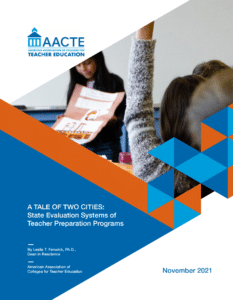 Landscape Analysis Report
Landscape Analysis Report
A Tale of Two Cities: State Evaluation Systems of Teacher Preparation Programs
The National Academy of Education (NAEd) steering committee for Evaluating and Improving Teacher Preparation Programs commissioned the American Association of Colleges for Teacher Education (AACTE) to produce a teacher evaluation system landscape analysis, including a state-by-state summary of the evaluation system components and an analysis of similarities and differences between and among states. Authored by AACTE Dean in Residence Leslie T. Fenwick, this landscape analysis report presents information and data about state evaluation standards for teacher preparation programs and providers.
08 Nov2021
By Ronn Nozoe and Earl Franks
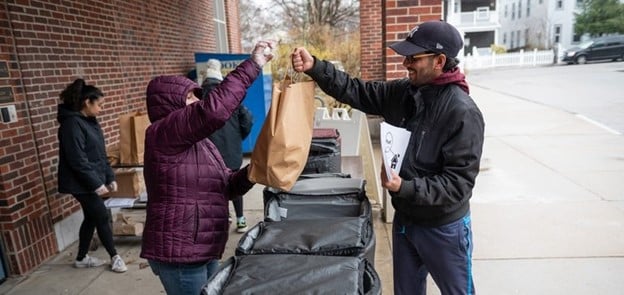
Permission granted by Jeremiah Robinson, the Office of Mayor Martin J. Walsh, City of Boston
In this time of division and crisis, we, as school leaders, cannot sit quietly by. Volatile and violent debates threaten to erode our hallways and undermine our solemn promise to America’s students—to provide them with high-quality education in safe spaces. We are compelled to reaffirm what and who we stand for and to advocate for a collective recommitment to civility in our schools and in our communities.
05 Nov2021
By Nicole Dunn
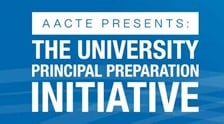 AACTE has released a new podcast series that chronicles the multi-year principal program redesign initiative undertaken by the Wallace Foundation: The University Principal Preparation Initiative (UPPI). This podcast is designed to inspire learning opportunities and educational partnerships among AACTE members and stakeholders and to create highly trained and qualified principals who will influence and shape their learning communities.
AACTE has released a new podcast series that chronicles the multi-year principal program redesign initiative undertaken by the Wallace Foundation: The University Principal Preparation Initiative (UPPI). This podcast is designed to inspire learning opportunities and educational partnerships among AACTE members and stakeholders and to create highly trained and qualified principals who will influence and shape their learning communities.
In the first episode, AACTE interviews Rochelle Herring, senior program officer at the Wallace Foundation, to introduce the initiative, though which seven principal preparation programs were selected to partner with district and state leaders in their redesign efforts, as well as investigate how state policy could be leveraged to improve the quality of principal preparation statewide. Throughout the conversation, Herring cites research proving that the principal is a multiplier of good teaching and therefore, improved learning.
03 Nov2021
By Jacqueline Rodriguez
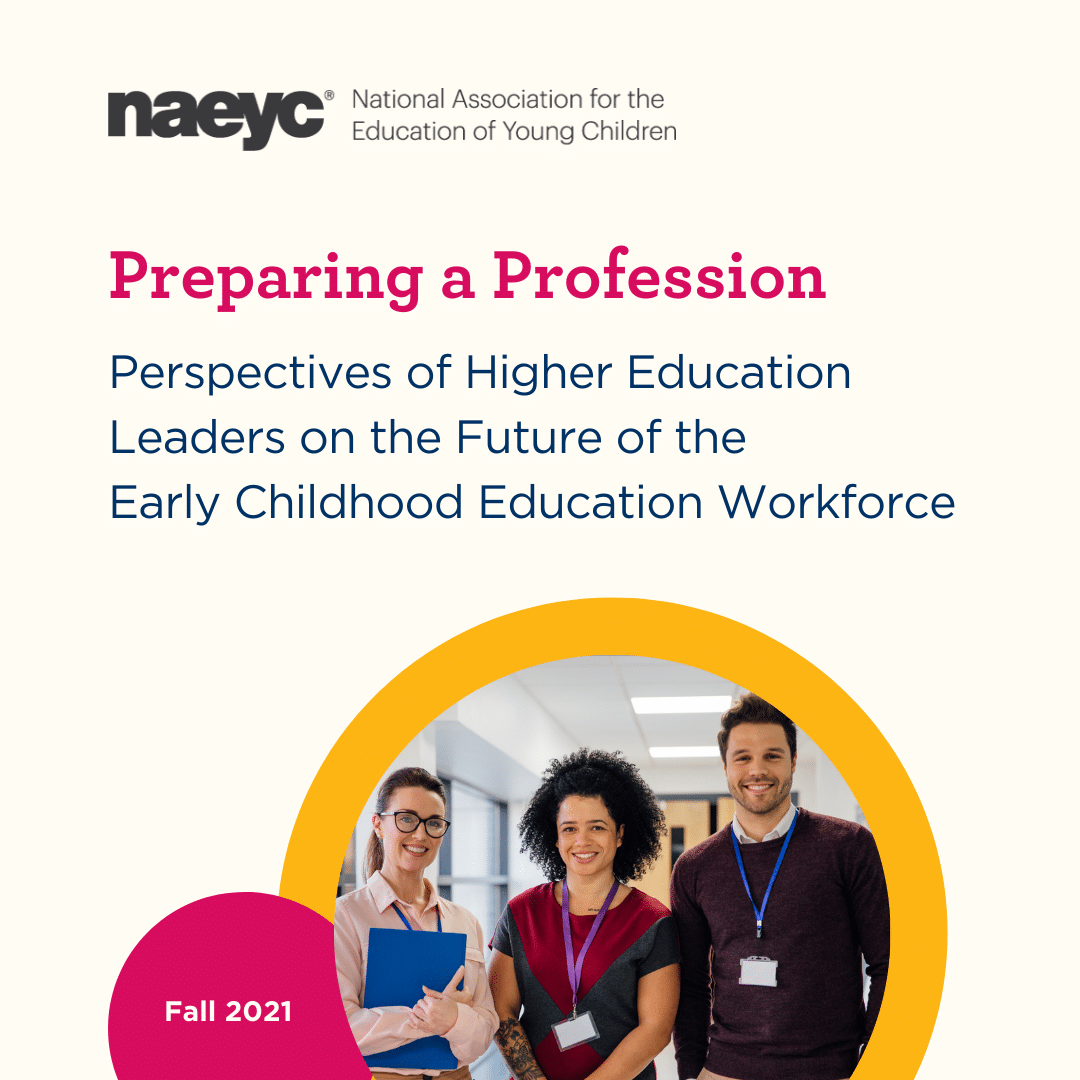 Higher education is a critical part of the early childhood education (ECE) profession as it serves as the primary pipeline for the early childhood education workforce. And, like early childhood educators, most ECE higher education programs find themselves under-resourced and under-valued. As such, the Unifying Framework for the Early Childhood Education Profession calls for a significant investment in ECE higher education programs to shore up the ECE workforce pipeline and to ensure that practitioners are equipped with the necessary knowledge and skills to effectively support the development and education of young children.
Higher education is a critical part of the early childhood education (ECE) profession as it serves as the primary pipeline for the early childhood education workforce. And, like early childhood educators, most ECE higher education programs find themselves under-resourced and under-valued. As such, the Unifying Framework for the Early Childhood Education Profession calls for a significant investment in ECE higher education programs to shore up the ECE workforce pipeline and to ensure that practitioners are equipped with the necessary knowledge and skills to effectively support the development and education of young children.
01 Nov2021
By Maria Hyler
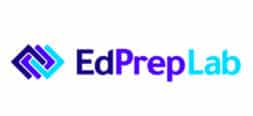 Strong pre-K–12 partnerships are vital to high quality educator preparation. To ensure a diverse, effective, and sustainable educator workforce, it is important that preparation programs and district partners develop and nurture authentic, reciprocal partnerships. These cross-institutional relationships are more important than ever in the wake of the isolation and disruption caused by the pandemic. Effective partnerships are complex and require intentional structures, dedicated resources, and shared goals and values.
Strong pre-K–12 partnerships are vital to high quality educator preparation. To ensure a diverse, effective, and sustainable educator workforce, it is important that preparation programs and district partners develop and nurture authentic, reciprocal partnerships. These cross-institutional relationships are more important than ever in the wake of the isolation and disruption caused by the pandemic. Effective partnerships are complex and require intentional structures, dedicated resources, and shared goals and values.
27 Oct2021
By Ward Cummings
 AACTE continues to work with its national coalition partners toward enhancing and improving the state of education and the educator preparator profession in the United States. To that end, the Association added its voice this month to the chorus of supporters of the Biden Administration’s Build Back Better education agenda.
AACTE continues to work with its national coalition partners toward enhancing and improving the state of education and the educator preparator profession in the United States. To that end, the Association added its voice this month to the chorus of supporters of the Biden Administration’s Build Back Better education agenda.
In a letter to congressional leaders who are currently engaged in negotiating the elements of the president’s budget package, AACTE expressed its specific support for a key higher education component of the Building Back Better agenda: America’s College Promise. Contained within America’s College Promise is a historic, first-of-its-kind tuition-free community college program; an increase to the Pell Grant; and a retention and completion grant program.
25 Oct2021
By Grady Wilburn and James Elias
The reading and mathematics scores of 13-year-old students fell between 2012 and 2020—the first time in the almost 50-year history of the National Assessment of Educational Progress (NAEP) long-term trend (LTT) assessment—according to results released today by the National Center for Education Statistics (NCES). The performance of 9-year-olds remained the same in both subjects compared to 2012.
In both age groups and subjects, the scores of lower-performing students declined since 2012, the previous assessment year, mirroring patterns observed in other subjects assessed by NAEP, also known as The Nation’s Report Card.
25 Oct2021
By Jane E. West and Kaitlyn Brennan
 This blog post is written by AACTE consultant Jane West and is intended to provide updated information. The views expressed in this post do not necessarily reflect the views of AACTE.
This blog post is written by AACTE consultant Jane West and is intended to provide updated information. The views expressed in this post do not necessarily reflect the views of AACTE.
As you will recall, in July the House Appropriations Committee approved the FY 2022 Labor, Health and Human Services, Education, and Related Agencies appropriations bill . The bill included historic increases for education from the FY 2021 level—a 41% increase for the Department of Education, which would bring the Department’s total budget to $102.8 billion. This week, a bit unexpectedly, Senate Appropriations Committee Chair Patrick Leahy (D-VT) released drafts of the nine remaining fiscal year (FY) 2022 Senate appropriations bills, including the Labor-HHS-Education bill. This is an unusual move, as we usually don’t see bills until they have gone through the Subcommittee markup. These drafts have not been approved by either Subcommittees or the full committee. Rather, they are intended to be a marker to keep the process rolling.
07 Oct2021
By Katrina Norfleet
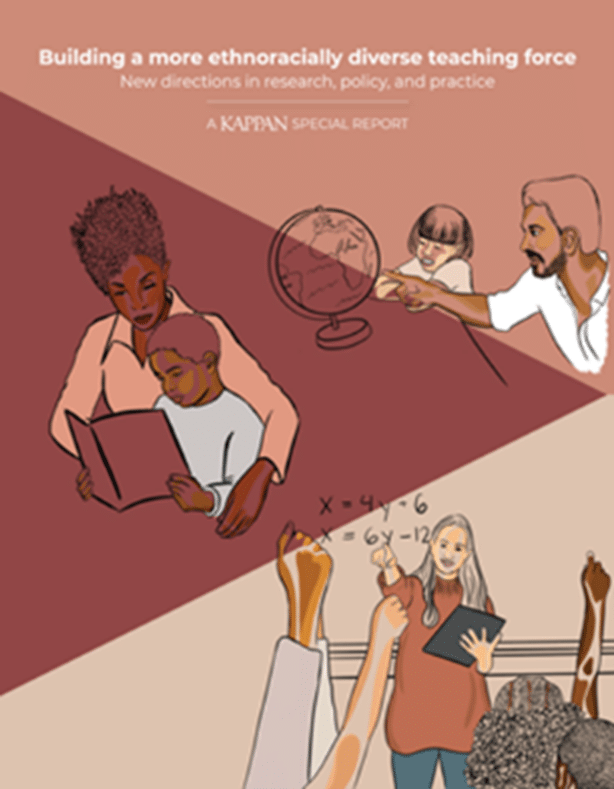 Phi Delta Kappan (PDK) recently released a special report about teacher workforce diversity, Building a more ethnoracially diverse teaching force: New directions in research, policy, and practice, guest edited by AACTE members Conra Gist (University of Houston) and Travis Bristol (University of California, Berkeley). The special report highlights the forthcoming Handbook of Research on Teachers of Color (AERA, 2022) by Gist and Bristol, featuring research by Black, Indigenous, and People of Color (BIPOC) educators on developing a more diverse teacher workforce.
Phi Delta Kappan (PDK) recently released a special report about teacher workforce diversity, Building a more ethnoracially diverse teaching force: New directions in research, policy, and practice, guest edited by AACTE members Conra Gist (University of Houston) and Travis Bristol (University of California, Berkeley). The special report highlights the forthcoming Handbook of Research on Teachers of Color (AERA, 2022) by Gist and Bristol, featuring research by Black, Indigenous, and People of Color (BIPOC) educators on developing a more diverse teacher workforce.
The Kappan report provides brief overviews of the 11 domains of inquiry that are explored in greater length in the handbook by Gist and Bristol, along with a wide range of contributors. To bring Teachers of Color, Indigenous Teachers, and other educators into the conversation about how best to diversify the teaching profession, each domain pairs research briefs with teacher-written testimonies. The domains of inquiry include the following:








 AACTE recently launched its year-long collaboration with the Teacher Licensure Collaborative (TLC), a partnership with the Learning Policy Institute, Education Commission of the States, and additional national partners. TLC is a gathering of national organizations and interested state education institutions working to advance revisions of state licensure and certification standards in order to incorporate whole child practices and to ensure alignment with the science of learning and development.
AACTE recently launched its year-long collaboration with the Teacher Licensure Collaborative (TLC), a partnership with the Learning Policy Institute, Education Commission of the States, and additional national partners. TLC is a gathering of national organizations and interested state education institutions working to advance revisions of state licensure and certification standards in order to incorporate whole child practices and to ensure alignment with the science of learning and development. The Center for Innovation, Design, and Digital Learning (CIDDL) is inviting you to join a community of higher education faculty members focused on sharing tips and tricks, research-based practices, and strategies for innovative use of educational technology in educator or leadership preparation programs. CIDDL’s mission is to influence change that supports the appropriate use of educational technology in all early intervention/early childhood special education (EI/ECSE), related services, and K-12 learning environments to improve outcomes for all students, especially those with disabilities.
The Center for Innovation, Design, and Digital Learning (CIDDL) is inviting you to join a community of higher education faculty members focused on sharing tips and tricks, research-based practices, and strategies for innovative use of educational technology in educator or leadership preparation programs. CIDDL’s mission is to influence change that supports the appropriate use of educational technology in all early intervention/early childhood special education (EI/ECSE), related services, and K-12 learning environments to improve outcomes for all students, especially those with disabilities.


 AACTE has released a new podcast series that chronicles the multi-year principal program redesign initiative undertaken by the Wallace Foundation: The University Principal Preparation Initiative (UPPI). This podcast is designed to inspire learning opportunities and educational partnerships among AACTE members and stakeholders and to create highly trained and qualified principals who will influence and shape their learning communities.
AACTE has released a new podcast series that chronicles the multi-year principal program redesign initiative undertaken by the Wallace Foundation: The University Principal Preparation Initiative (UPPI). This podcast is designed to inspire learning opportunities and educational partnerships among AACTE members and stakeholders and to create highly trained and qualified principals who will influence and shape their learning communities.  Higher education is a critical part of the early childhood education (ECE) profession as it serves as the primary pipeline for the early childhood education workforce. And, like early childhood educators, most ECE higher education programs find themselves under-resourced and under-valued. As such, the
Higher education is a critical part of the early childhood education (ECE) profession as it serves as the primary pipeline for the early childhood education workforce. And, like early childhood educators, most ECE higher education programs find themselves under-resourced and under-valued. As such, the  Strong pre-K–12 partnerships are vital to high quality educator preparation. To ensure a diverse, effective, and sustainable educator workforce, it is important that preparation programs and district partners develop and nurture authentic, reciprocal partnerships. These cross-institutional relationships are more important than ever in the wake of the isolation and disruption caused by the pandemic. Effective partnerships are complex and require intentional structures, dedicated resources, and shared goals and values.
Strong pre-K–12 partnerships are vital to high quality educator preparation. To ensure a diverse, effective, and sustainable educator workforce, it is important that preparation programs and district partners develop and nurture authentic, reciprocal partnerships. These cross-institutional relationships are more important than ever in the wake of the isolation and disruption caused by the pandemic. Effective partnerships are complex and require intentional structures, dedicated resources, and shared goals and values. AACTE continues to work with its national coalition partners toward enhancing and improving the state of education and the educator preparator profession in the United States. To that end, the Association added its voice this month to the chorus of supporters of the Biden Administration’s Build Back Better education agenda.
AACTE continues to work with its national coalition partners toward enhancing and improving the state of education and the educator preparator profession in the United States. To that end, the Association added its voice this month to the chorus of supporters of the Biden Administration’s Build Back Better education agenda. This blog post is written by AACTE consultant Jane West and is intended to provide updated information. The views expressed in this post do not necessarily reflect the views of AACTE.
This blog post is written by AACTE consultant Jane West and is intended to provide updated information. The views expressed in this post do not necessarily reflect the views of AACTE.  Phi Delta Kappan (PDK) recently released a special report about teacher workforce diversity, Building a more ethnoracially diverse teaching force: New directions in research, policy, and practice, guest edited by AACTE members Conra Gist (University of Houston) and Travis Bristol (University of California, Berkeley). The special report highlights the forthcoming Handbook of Research on Teachers of Color (AERA, 2022) by Gist and Bristol, featuring research by Black, Indigenous, and People of Color (BIPOC) educators on developing a more diverse teacher workforce.
Phi Delta Kappan (PDK) recently released a special report about teacher workforce diversity, Building a more ethnoracially diverse teaching force: New directions in research, policy, and practice, guest edited by AACTE members Conra Gist (University of Houston) and Travis Bristol (University of California, Berkeley). The special report highlights the forthcoming Handbook of Research on Teachers of Color (AERA, 2022) by Gist and Bristol, featuring research by Black, Indigenous, and People of Color (BIPOC) educators on developing a more diverse teacher workforce.